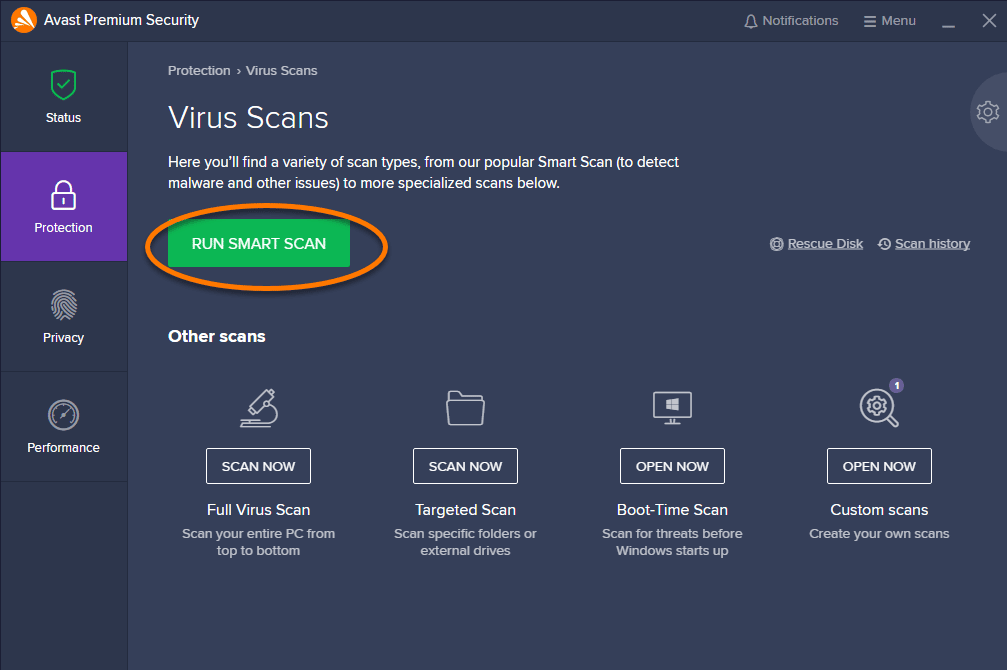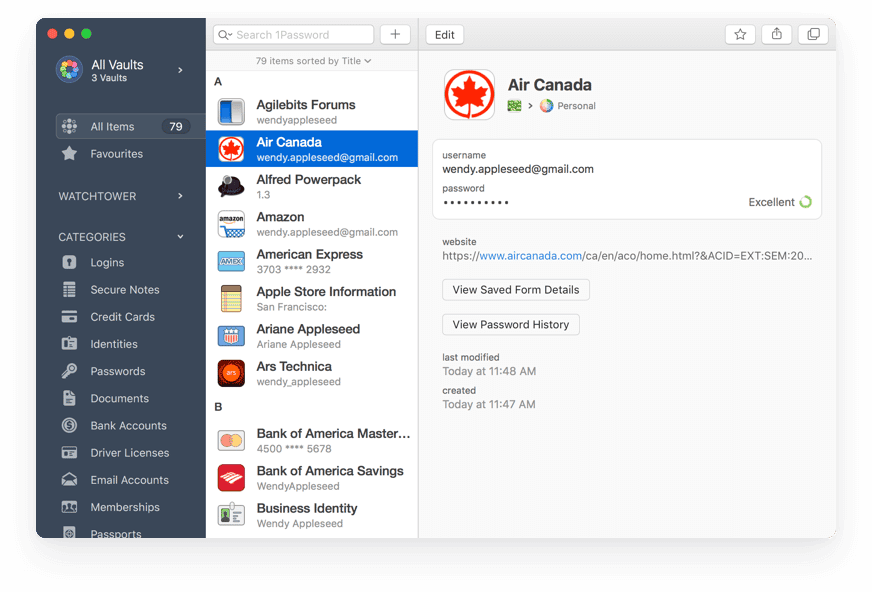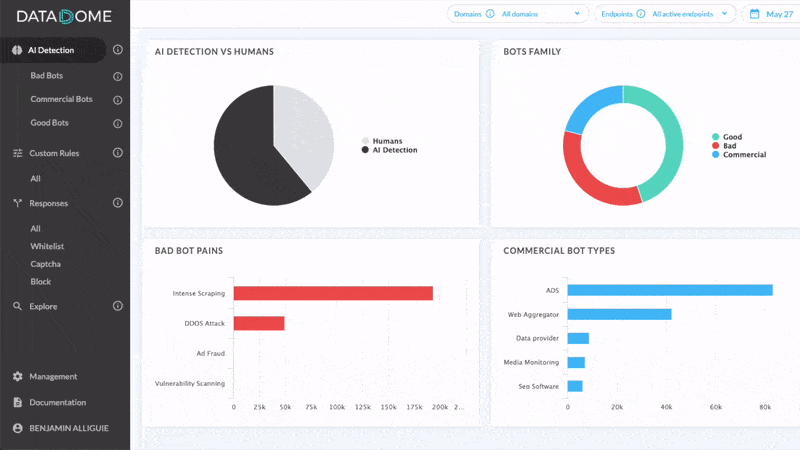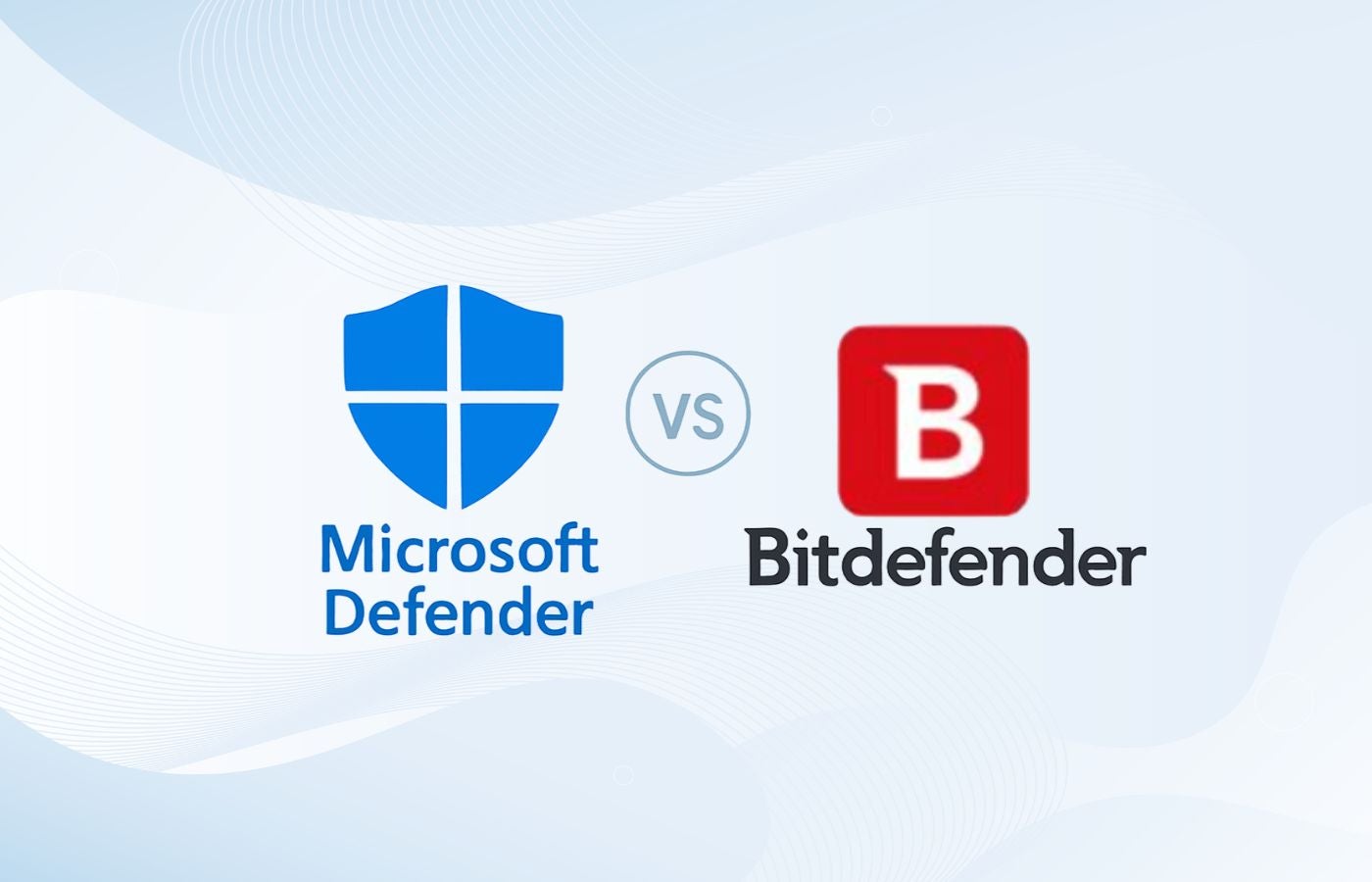Malware is one of the biggest threats businesses face, and with nearly a third of all malware coming through the internet and email, businesses and consumers alike need ways to protect themselves. The best internet security software comes in several different forms, giving businesses all of the protection they need to identify and stop malware before it causes bigger problems. This guide covers the major categories of internet security suites and includes a few of the top options for each.
What are Types of Internet Security Software?
- Antivirus Software
- WiFi 6 Routers
- Virtual Private Networks
- Password Managers
- Email Security Software
- Web Application Firewall
- Bot Management Software
Antivirus Software

Antivirus software, also called virus protection software, is likely one of the best-known types of cybersecurity software, with 77 percent of adults using it on their computer and 24 percent on their mobile devices. Originally developed to detect and remove malware or computer viruses, modern antivirus software can now protect against ransomware, browser attacks, keyloggers, malicious websites, and even sometimes phishing attempts. Most antivirus software uses signature-based detection to identify malware, making it great for protecting against known threats, but more and more the top vendors are adding machine learning-based detection even to consumer products, which can identify threats through unexpected behavior and other indicators.
One thing to note is that free antivirus software can sometimes be outdated or not serviced as frequently, so if you often work with sensitive data, you’ll likely need to pay for antivirus protection.
Also Read: 5 Best Antivirus Software of 2023
Key Features of Antivirus Software
When choosing antivirus software, look for tools that include at least the following features:
- Real-time scanning
- Automatic updates
- Automatic deletion of malicious code
- Vulnerability detection
- Scheduled scans
- Encryption
- Identity theft protection
Also Read: Mobile Malware: Threats and Solutions
Best Antivirus Protection for Consumers
Consumers looking for solid antivirus protection for their devices should consider the following tools:
- Norton Security Antivirus Plus
- Microsoft Windows Defender
- Avast Antivirus
- Webroot SecureAnywhere Antivirus
- Bitdefender Total Security
- Sophos Home
Best Antivirus Protection for Businesses
Businesses will likely have to pay for antivirus protection, since most vendors don’t license their free software for commercial use. Here are some of the best antivirus software solutions for organizations:
Also Read: Bitdefender vs. McAfee: Consumer & Enterprise Endpoint Security Software Compared
WiFi 6 Routers
WiFi 6 is the newest generation of WiFi, created to speed connections, connect to more devices at once, and reduce latency for multi-device households and businesses. Where WiFi 5 routers could get overwhelmed when too many devices attempted to connect which could compromise network security, WiFi 6 routers should alleviate that problem, providing a better internet security suite by preventing attackers from just spamming a router with connect requests.
To get WiFi 6, you’ll need a WiFi 6-compatible router, and if you haven’t upgraded your devices (laptops, smartphones, tablets, etc.) in the last few years, you might start looking at new ones. The good news is, new devices should come compatible with WiFi 6 by default, so you won’t have to do anything special to get it. And WiFi routers are coming with some strong security features too, some free and some costing extra, but the combination of well-protected devices and a well-protected network is compelling.
Key Features of a WiFi 6 Router
A WiFi 6 router should include the following features:
- Multi-user, multiple input, multiple output (MU-MIMO)
- Orthogonal frequency division multiple access (OFDMA)
- Target wake time
- WPA3 security protocol
- Extended range
- More spatial streams
Best WiFi 6 Routers
Here are the best WiFi 6 routers for both homes and businesses:
- TP-Link Archer AX50
- Asus RT-AX86U
- Netgear Nighthawk RAXE500
- Netgear Orbi Wi-Fi 6E
- Gryphon AX Mesh System
- Eero Pro 6
- TP-Link Deco X20
Also Read: The Best Wi-Fi 6 Routers Secure and Fast Enough for Business
Virtual Private Networks (VPNs)
A virtual private network (VPN) takes a public internet connection (i.e. what you’d get in a Starbucks) and masks your IP address to give you privacy while browsing. It even provides more privacy than secured WiFi connections because it encrypts the connection to protect private information and prevent session hijacking. Sometimes, people also use VPNs to make it seem like they’re browsing from another place, whether that’s to browse Netflix shows available in another country or securely access files from your company’s main office. Less-promoted uses for VPNs include accessing restricted sites in authoritarian countries and masking illegal activities. VPNs can hide browsing history, your location, your IP address, the type of device you’re using, and web activity.
Key Features of a VPN
When choosing a VPN, these are the features you should look for:
- Encryption
- Multiple server locations to choose from
- Secure protocols (WireGuard, OpenVPN, IKEv2/IPSec, etc.)
- Mobile applications
- DNS leak protection
- Kill switch
- No log policy
Best VPNs for Consumers
Consumers just looking to add more privacy to their browsing experience or discover content from other locations should consider these VPNs:
Also Read: NordVPN vs ExpressVPN: Which VPN Should You Choose?
Best VPNs for Business
Businesses exploring VPN options for maximum security and privacy should look at the following VPN options:
- Check Point’s SASE
- NordLayer
- Twingate
- CyberGhost
- Encrypt.me
Also Read: Best Enterprise VPN Solutions
Password Managers

A password manager improves internet security by helping users create diverse, secure passwords for each account they own. Users can store, generate, and edit passwords for both online websites and local applications. Password managers store files in an encrypted database, preventing anyone but authorized users from accessing the credentials. Users can access the database with a single “master” password, only requiring them to remember a single password instead of tens or hundreds. Most password managers allow users to fill in their credentials with the click of a button
Also Read: 8 Best Password Managers & Tools
Key Features of a Password Manager
Password managers should include the following features:
- Encryption
- Password generator
- Multifactor authentication
- Automatic device sync
- Password save and autofill
- Credit card storage
- Sharing options
Best Password Managers for Consumers
These are some of the best password managers on the market for personal use:
Best Password Managers for Business
Businesses that want to keep their data safe should provide one of these password managers to their employees:
Also Read: Best LastPass Alternatives for 2022: Compare Password Managers
Email Security Software
Phishing is a major problem for both consumers and businesses, and many phishing attempts come through email. Attackers can also send malware in an email designed to look like it’s from someone safe. In fact, about 81 percent of malicious files came through email. While some email accounts include protections, others may require additional layers of security, including spam filtering, ransomware protection, spyware protection, and encryption. Email security solutions help stop known phishing and malware attempts from ever landing in your inbox, while also monitoring email traffic for anomalies that may signify emerging threats. Businesses may also need secure email gateways, which monitor the emails an employee sends and receives and blocks spam traffic.
Key Features of Email Security Software
Any email security software you choose should include all or most of the following features:
- Spam filters
- Antivirus protection
- Encryption
- Content filtering
- Account takeover prevention
- Attachment sanitation
- Sandboxing
Best Business Email Protection
These are the best email security tools based on user reviews.
- Proofpoint Email Protection Suite
- ESET Endpoint Security
- SpamTitan
- AVG Internet Security Business Edition
- Avanan
Web Application Firewall (WAF)
A web application firewall (WAF) is an extra layer of protection between browser-based applications and the user. While most firewalls are network security solutions, a WAF works at the application layer. It scans traffic to identify malware and prevents attackers from injecting code into the application. WAFs operate based on a set of custom rules or policies that the organization sets about what traffic they do and don’t want to allow. The firewall allows any traffic that falls within that ruleset, while blocking any that doesn’t. WAFs have to be able to quickly filter the traffic and make decisions on whether to allow each packet, especially when it comes to attackers attempting a DDoS attack.
Key Features of Web App Firewalls
A web application firewall should include at least the following features:
- OWASP Top 10 protection
- PCI DSS compliance
- Centralized management dashboard
- Customizable rulesets
- Whitelisting/blacklisting (also called allowlisting and denylisting)
- Application vulnerability prevention
- Real-time monitoring
Best WAFs
Businesses looking for a solid WAF should consider the following options:
- Prophaze Web Application Firewall
- AppTrana Managed Web Application Firewall
- Akamai Kona Site Defender
- Cloudflare WAF
- Barracuda WAF
Also Read: Top Web Application Firewall (WAF) Solutions
Bot Management Software

One of the newest problems organizations face in regards to their internet security suite is bad bots. Bad bots can perpetrate brute force attacks much faster than humans can react to them, but a bot management tool can help block them in the first place. Bot management software uses behavioral analysis to distinguish between bot and human traffic and then examines the bot’s source to determine whether it’s malicious or benign. For example, it would allow a Google crawler bot to examine the website but block bots that appear to be from a brand new IP because it means they’re likely malicious.
Also Read: Attackers Use Bots to Circumvent Some Two-Factor Authentication Systems
Key Features of Bot Management
In order to effectively block bad bots, bot management software should include these key features:
- Artificial intelligence and machine learning
- Behavioral analysis
- HTTP analysis
- Real-time detection
- DDoS protection
- Challenge tests
- Honeypots for bad bots
Best Bot Management Tools
These are some of the best bot management tools currently available:
- DataDome
- Kasada
- PerimeterX Bot Defender
- Arkose Labs
- Check Point Anti-Bot
How do Businesses and Consumers Use Internet Security Software?
Both businesses and consumers have to take control of their online security in order to protect their personal and sensitive data from malware, theft and ransomware. Consumers should definitely add antivirus protection to their devices and use password managers to keep passwords secure and easy for them to access. They should also think about adding a VPN and WiFi 6 router, if they don’t already have one. Businesses also need all of this protection, but they should also add email security software, a WAF, and bot management tools to protect their website. Businesses have a responsibility to protect their customers as well as their own data, and the best internet security software can help them do that.
Read Next: Best Cybersecurity Awareness Training for Employees in 2022




